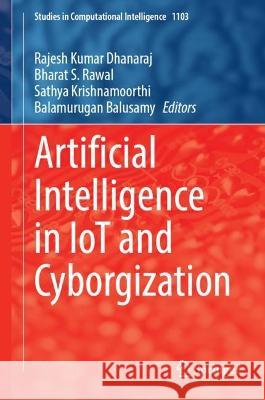Artificial Intelligence in Iot and Cyborgization » książka



Artificial Intelligence in Iot and Cyborgization
ISBN-13: 9789819943029 / Angielski
Artificial Intelligence in Iot and Cyborgization
ISBN-13: 9789819943029 / Angielski
(netto: 653,27 VAT: 5%)
Najniższa cena z 30 dni: 655,41
ok. 16-18 dni roboczych.
Darmowa dostawa!
This book introduces the concept of combining artificial intelligence (AI) and Internet of things (IoT) with real human organs to form a cybernetic organism or cyborg. It is a concept of man–machine mixture which helps in restoring or enhancing the ability of a body part by integrating some technology or artificial component with that body part. These smart artificial organs act as a substitute for real organs having various capabilities like scanning the body, detecting and transmitting the diagnostic data to machines. For example, an artificial heart is capable of monitoring the overall health of a person, and lungs can inform the doctor of abnormalities. This book benefits academic researchers and industrialist who work in the field cyborgization and IoT within human bodies.
1997-2026 DolnySlask.com Agencja Internetowa
KrainaKsiazek.PL - Księgarnia Internetowa









